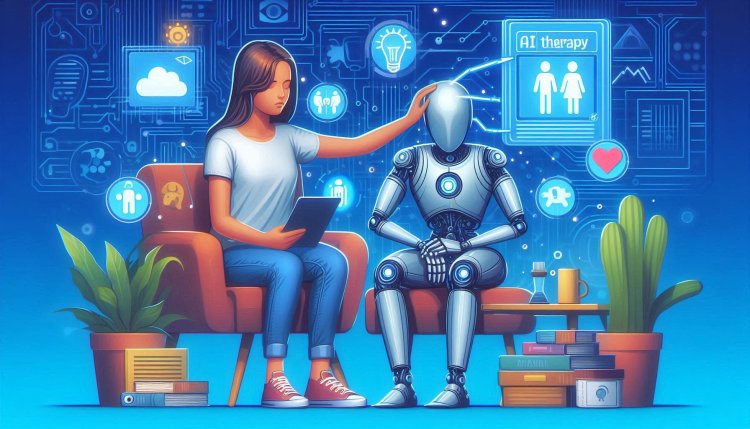AI therapy: Mental health support and counseling
AI therapy offers mental health support and counseling through technology, providing convenient and effective solutions for your well-being.

Mental Health Support and Counseling
Mental health support and counseling are essential components of overall well-being. Seeking help from a mental health professional can provide individuals with the tools and resources they need to cope with challenges, manage stress, and improve their mental health. Whether you are dealing with anxiety, depression, trauma, or simply need someone to talk to, therapy can be a valuable resource in your journey towards mental wellness.
Types of Mental Health Professionals
There are several types of mental health professionals who can provide support and counseling services:
- Psychologist: Psychologists are trained professionals who specialize in assessing and treating mental health conditions. They often use therapeutic techniques such as cognitive-behavioral therapy (CBT) to help individuals manage their symptoms.
- Therapist/Counselor: Therapists and counselors are licensed professionals who provide talk therapy to individuals, couples, and families. They can help clients explore their thoughts and feelings, develop coping strategies, and improve their relationships.
- Psychiatrist: Psychiatrists are medical doctors who specialize in the diagnosis and treatment of mental health disorders. They can prescribe medication and provide therapy to help individuals manage their symptoms.
Benefits of Therapy
Therapy can offer a wide range of benefits for individuals seeking mental health support:
- Emotional support: Therapy provides a safe and non-judgmental space for individuals to express their thoughts and feelings.
- Coping skills: Therapists can teach individuals coping skills to manage stress, anxiety, and other mental health challenges.
- Improved relationships: Therapy can help individuals improve their communication skills and develop healthier relationships with others.
- Self-discovery: Therapy can help individuals explore their values, beliefs, and goals, leading to greater self-awareness and personal growth.
Common Mental Health Issues
Therapy can be beneficial for a wide range of mental health issues, including:
- Anxiety disorders
- Depression
- Post-traumatic stress disorder (PTSD)
- Obsessive-compulsive disorder (OCD)
- Substance abuse
- Eating disorders
Types of Therapy
There are several types of therapy that mental health professionals may use to help individuals address their mental health concerns:
- Cognitive-Behavioral Therapy (CBT): CBT focuses on changing negative thought patterns and behaviors to improve mental health.
- Psychodynamic Therapy: Psychodynamic therapy explores how past experiences and unconscious thoughts influence current behavior and emotions.
- Interpersonal Therapy: Interpersonal therapy focuses on improving communication and relationships with others to alleviate mental health symptoms.
- Exposure Therapy: Exposure therapy is commonly used to treat phobias and PTSD by gradually exposing individuals to feared situations or memories.
How to Seek Help
If you are considering therapy or counseling, there are several steps you can take to find the right mental health professional for your needs:
- Ask for recommendations from your primary care physician or trusted friends and family members.
- Research therapists and counselors in your area who specialize in the issues you are facing.
- Reach out to potential therapists to schedule a consultation or initial appointment to see if they are a good fit for you.
- Consider factors such as cost, location, and therapy approach when choosing a mental health professional.
Online Therapy
For individuals who may have difficulty accessing in-person therapy, online therapy can be a convenient and effective alternative. Online therapy platforms offer a variety of services, including video sessions, messaging, and virtual support groups.
What's Your Reaction?

















